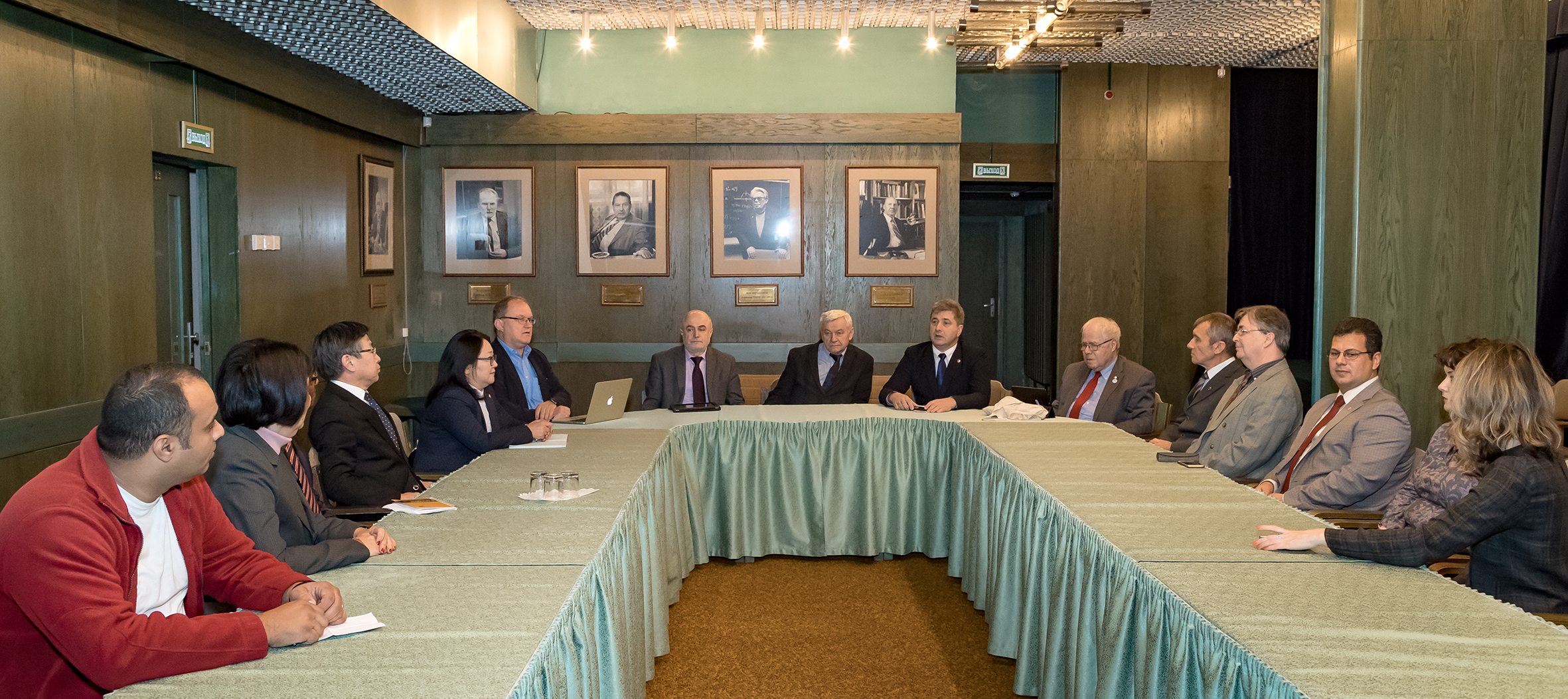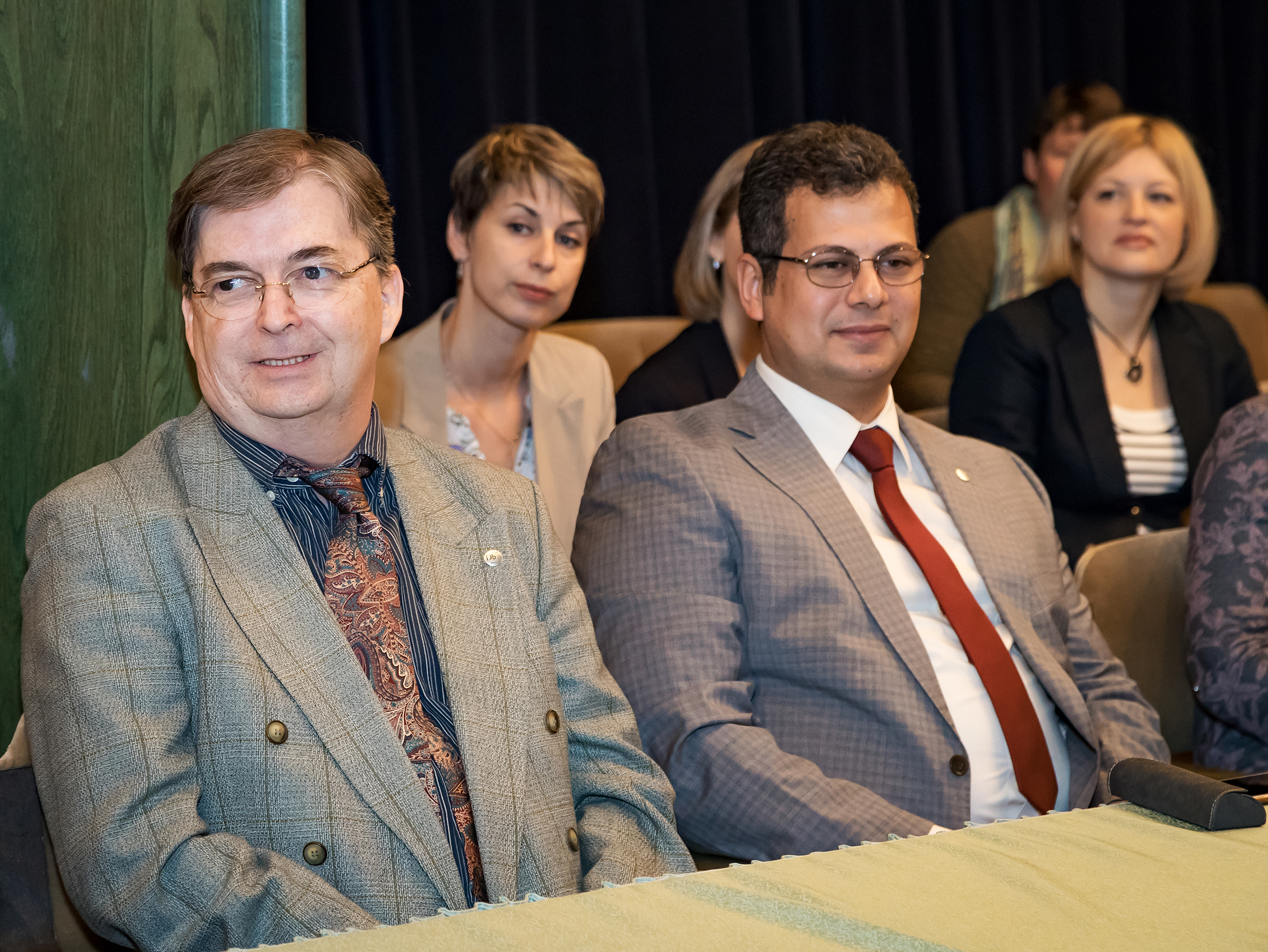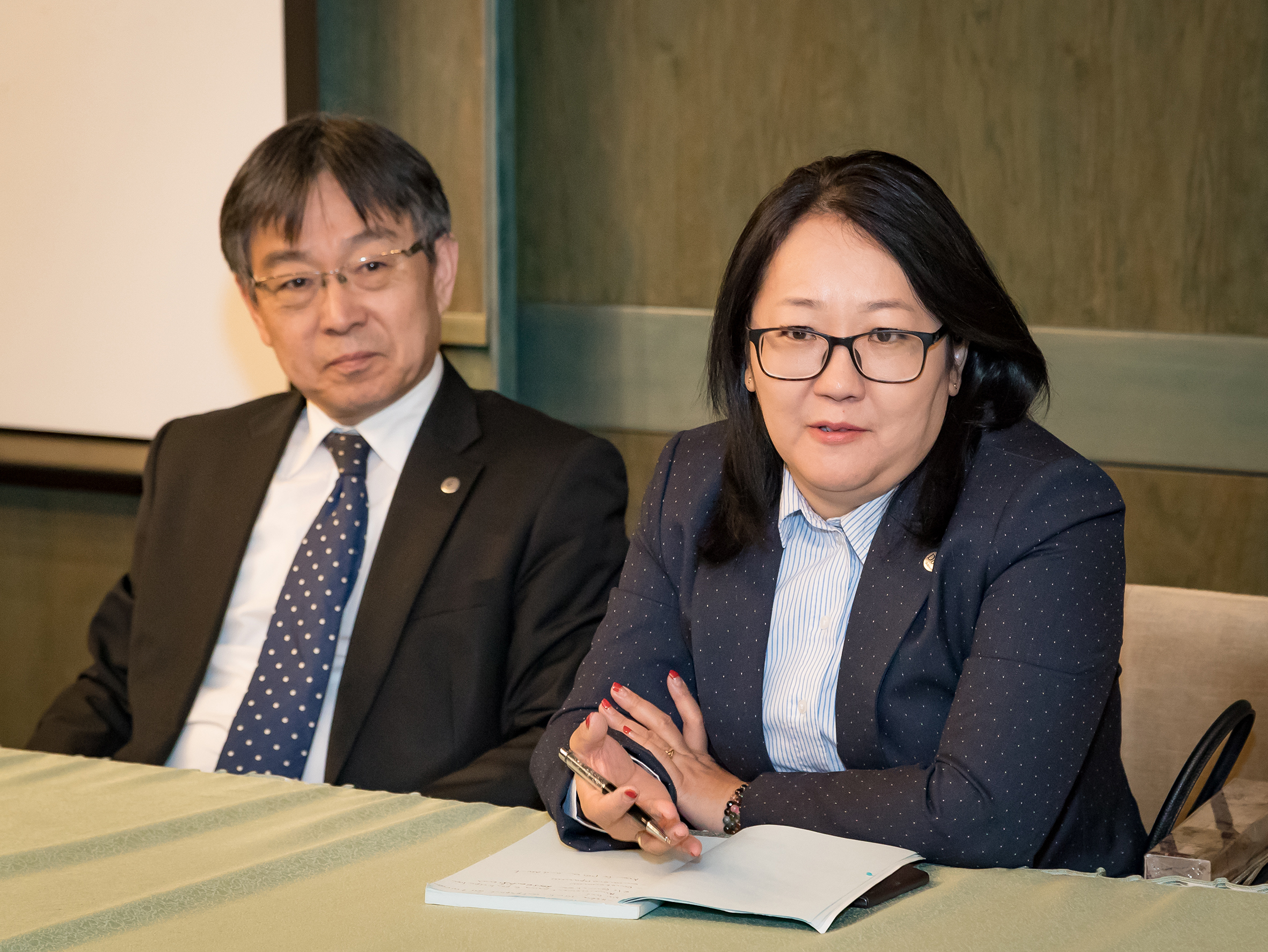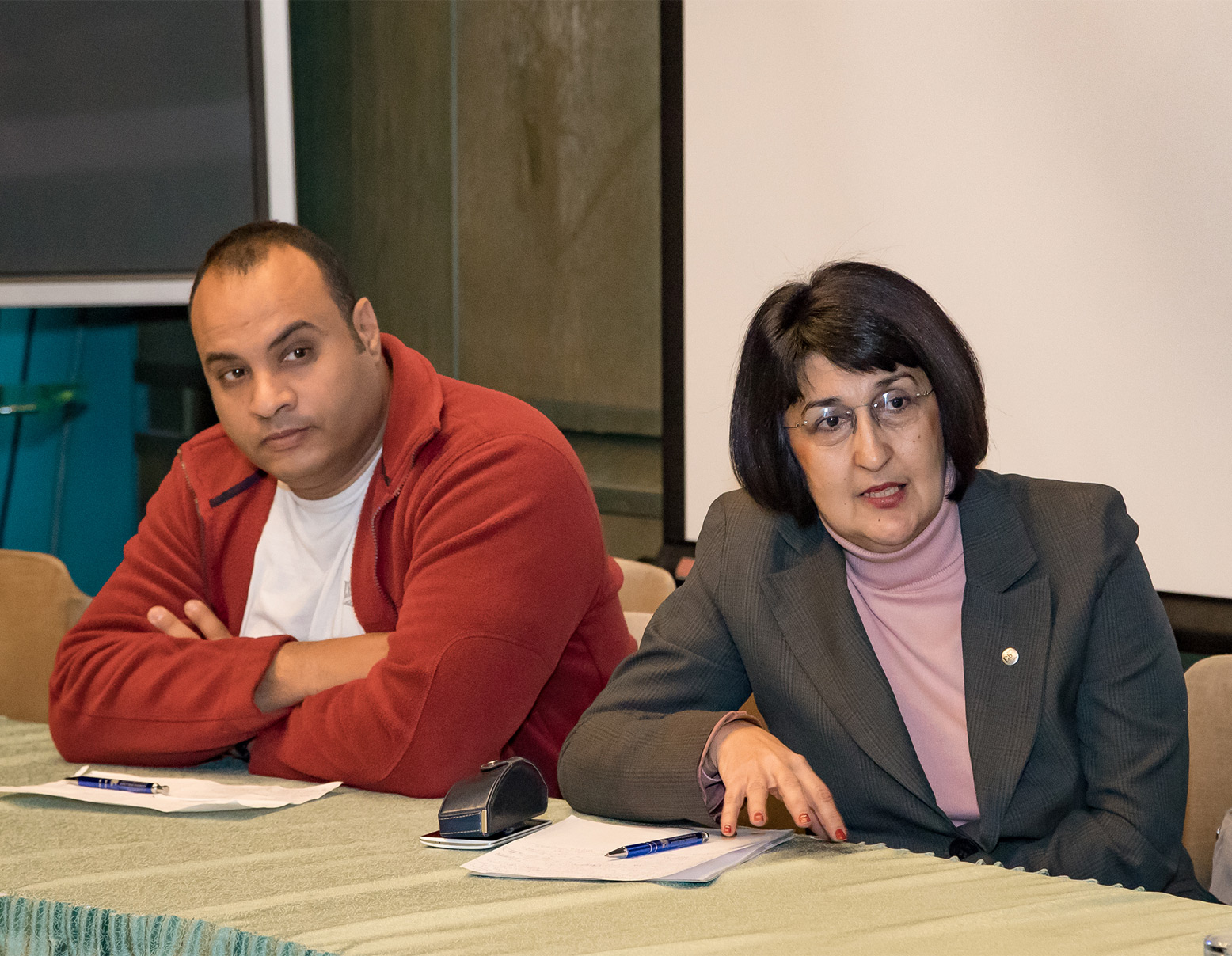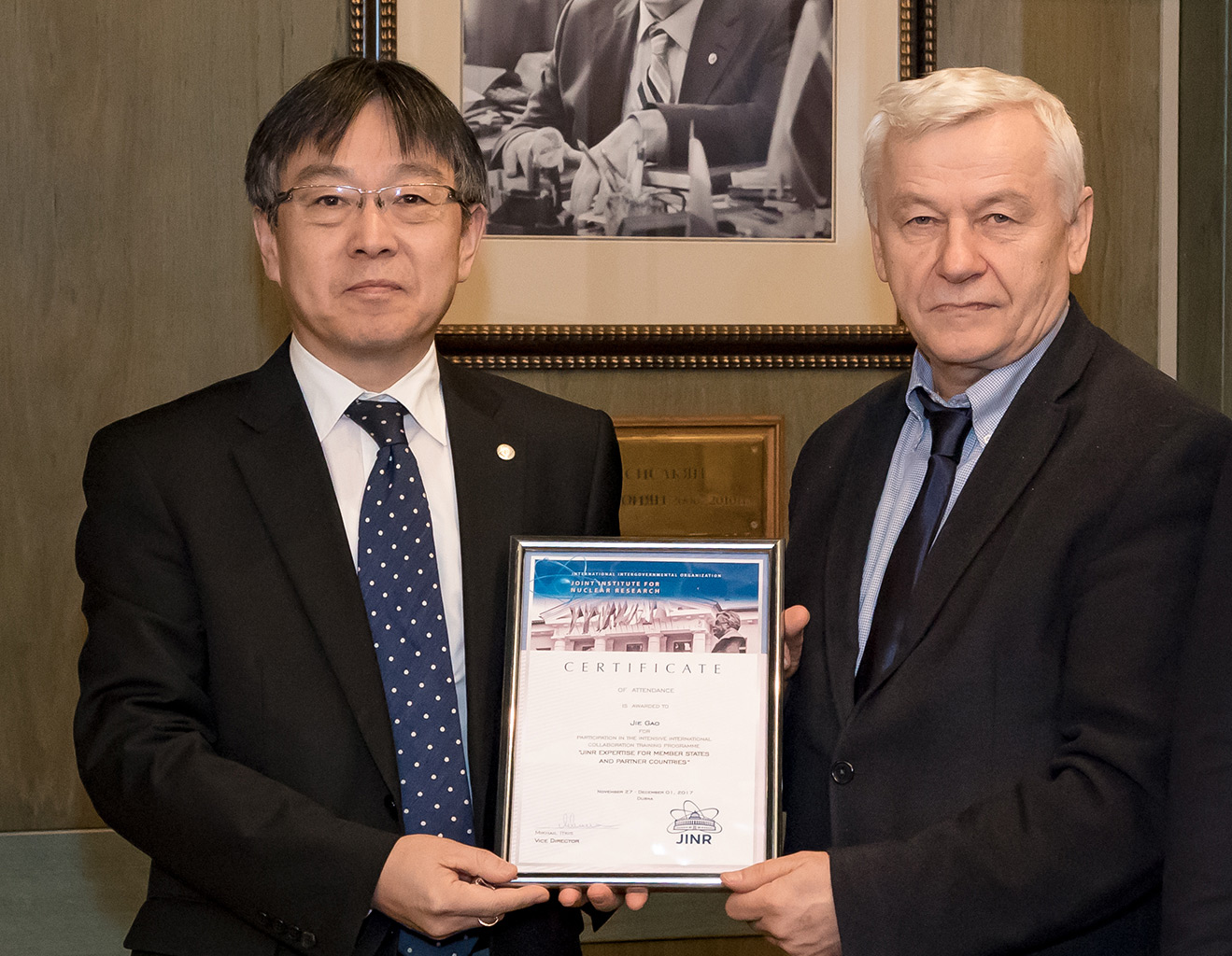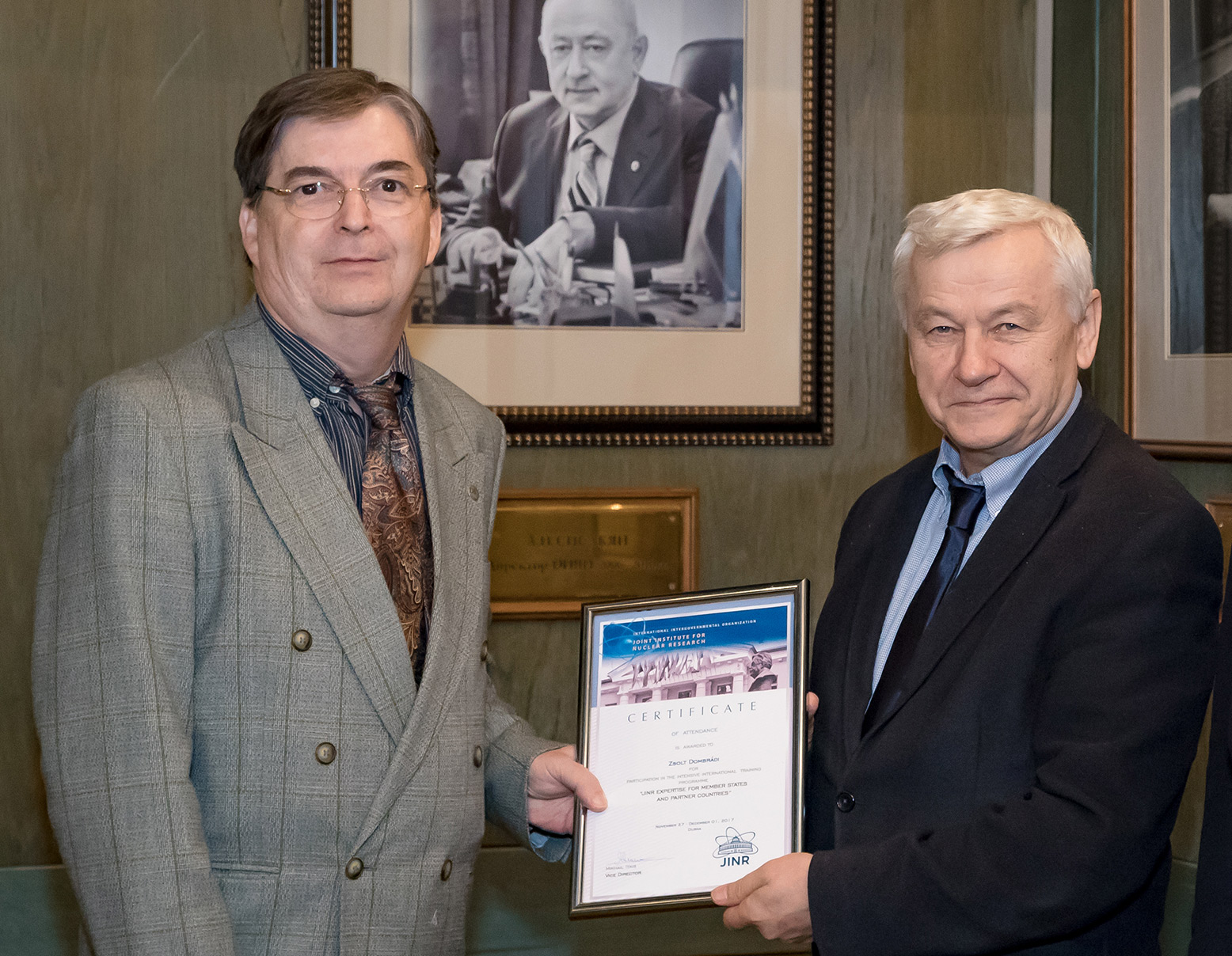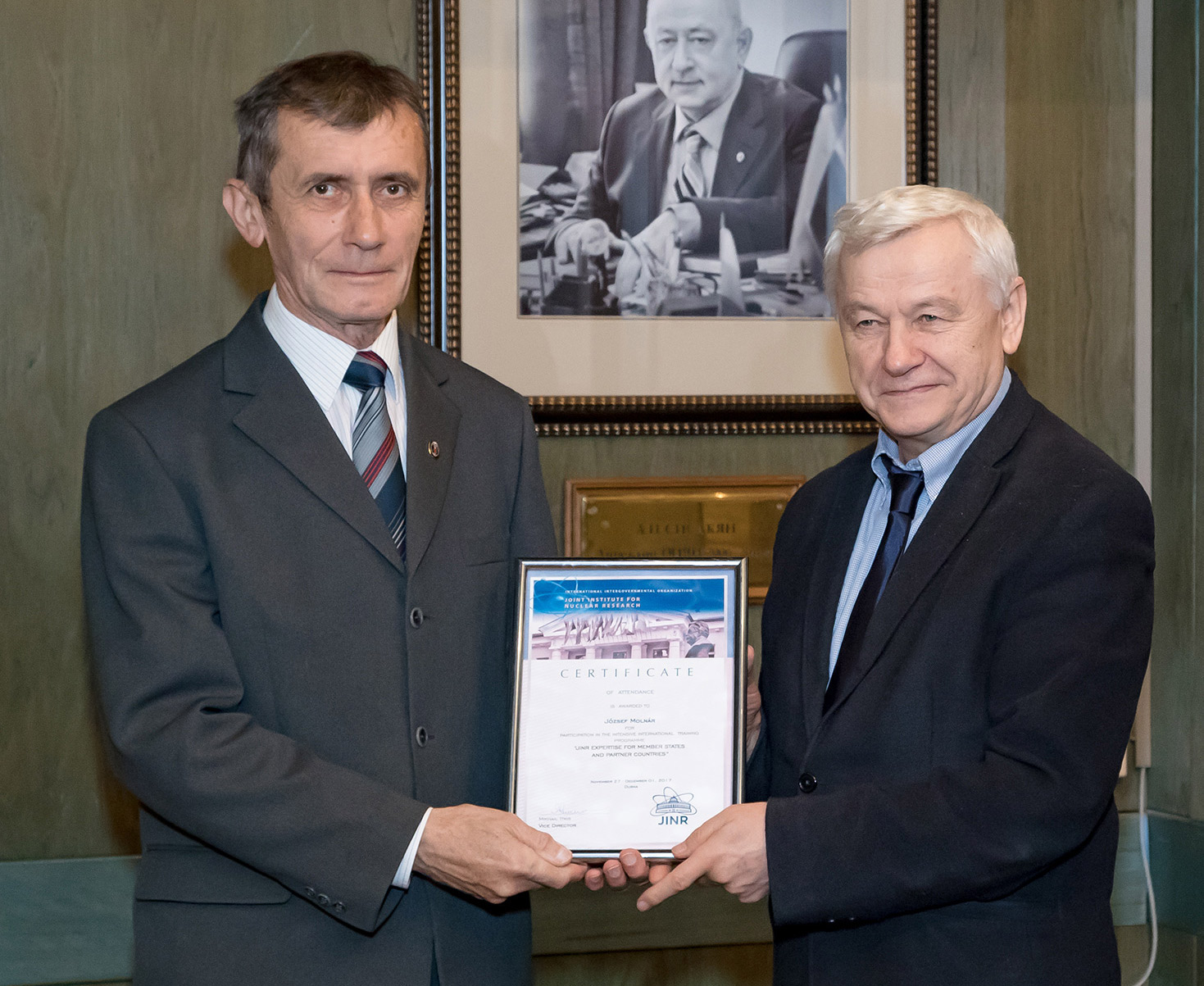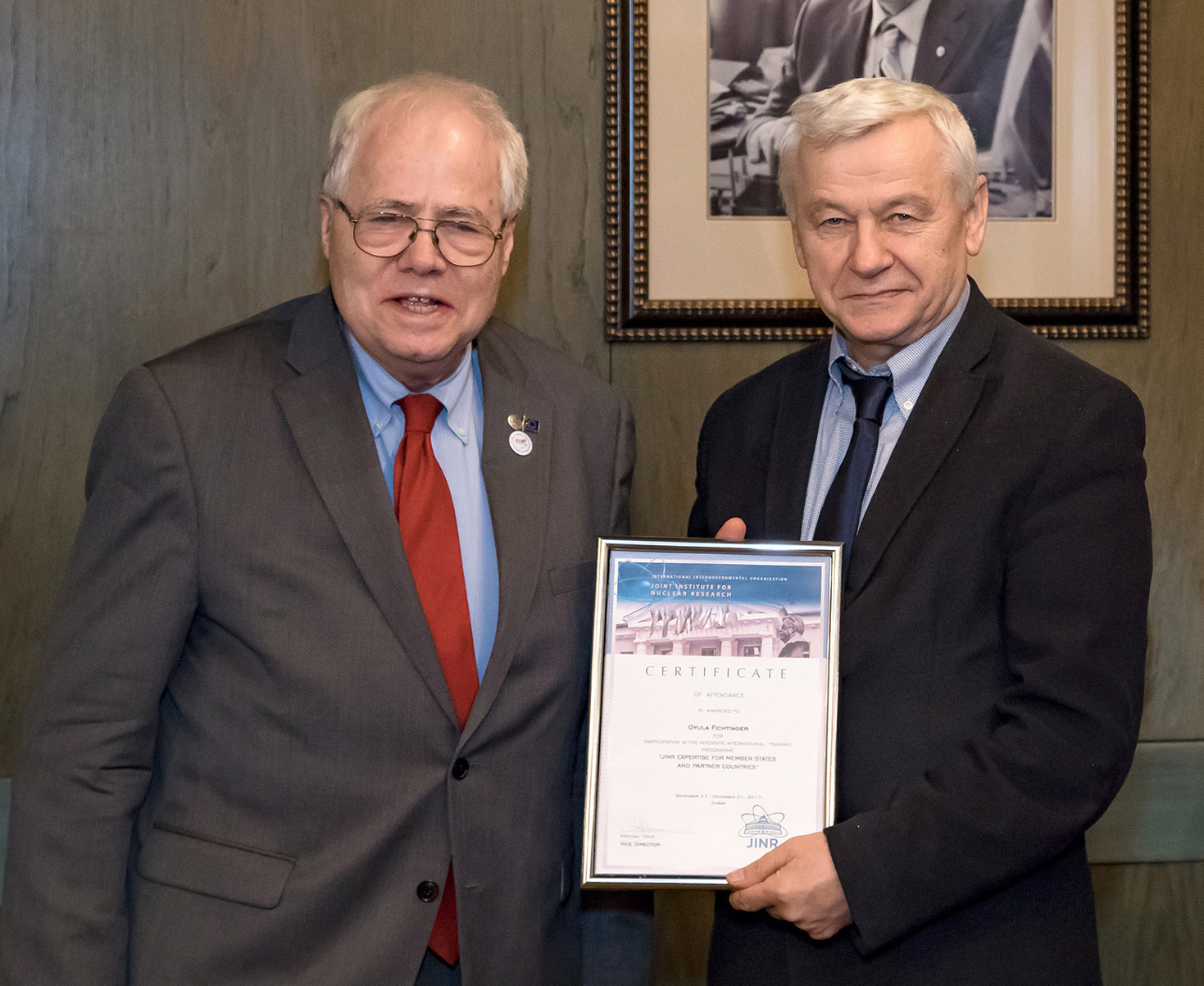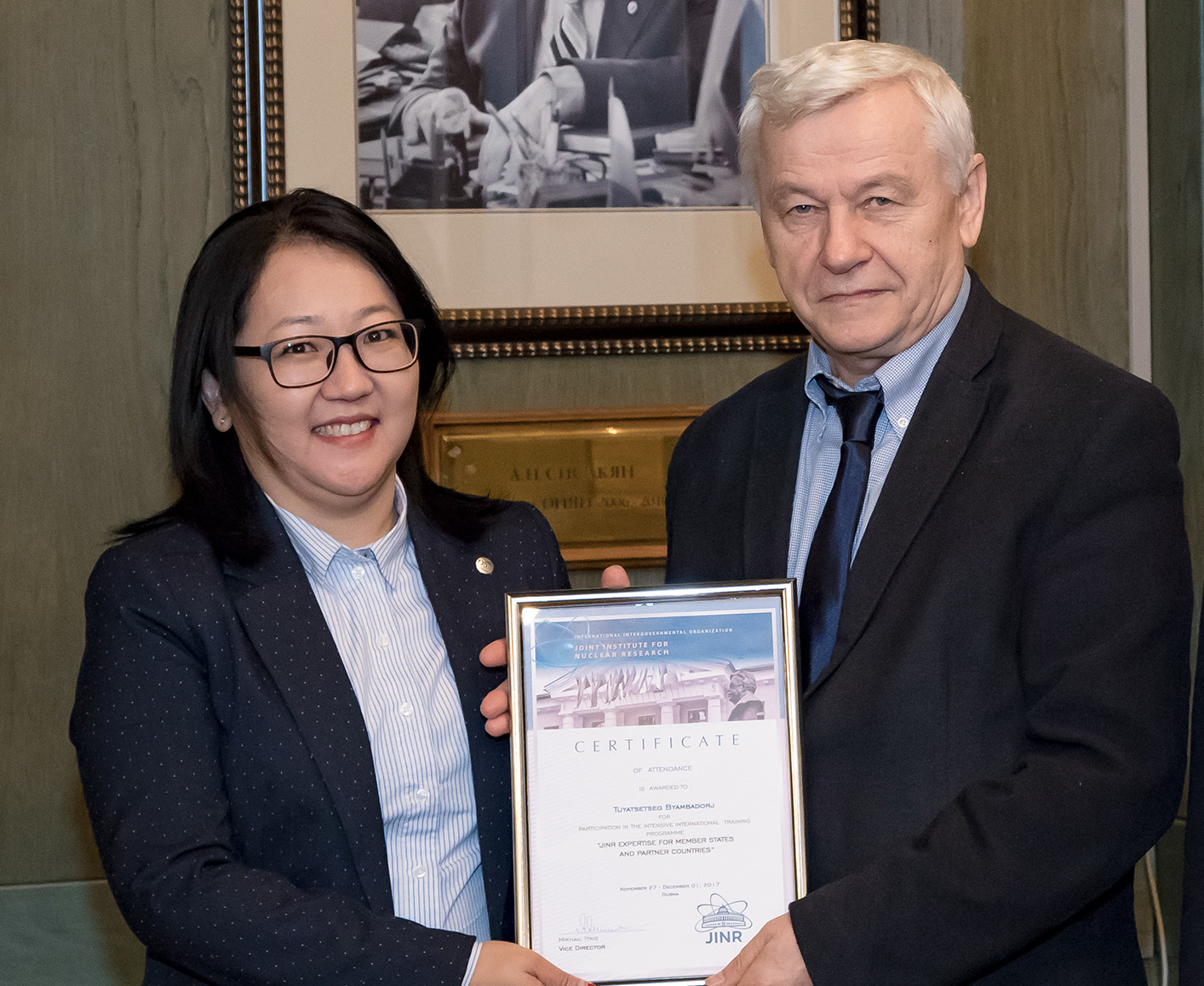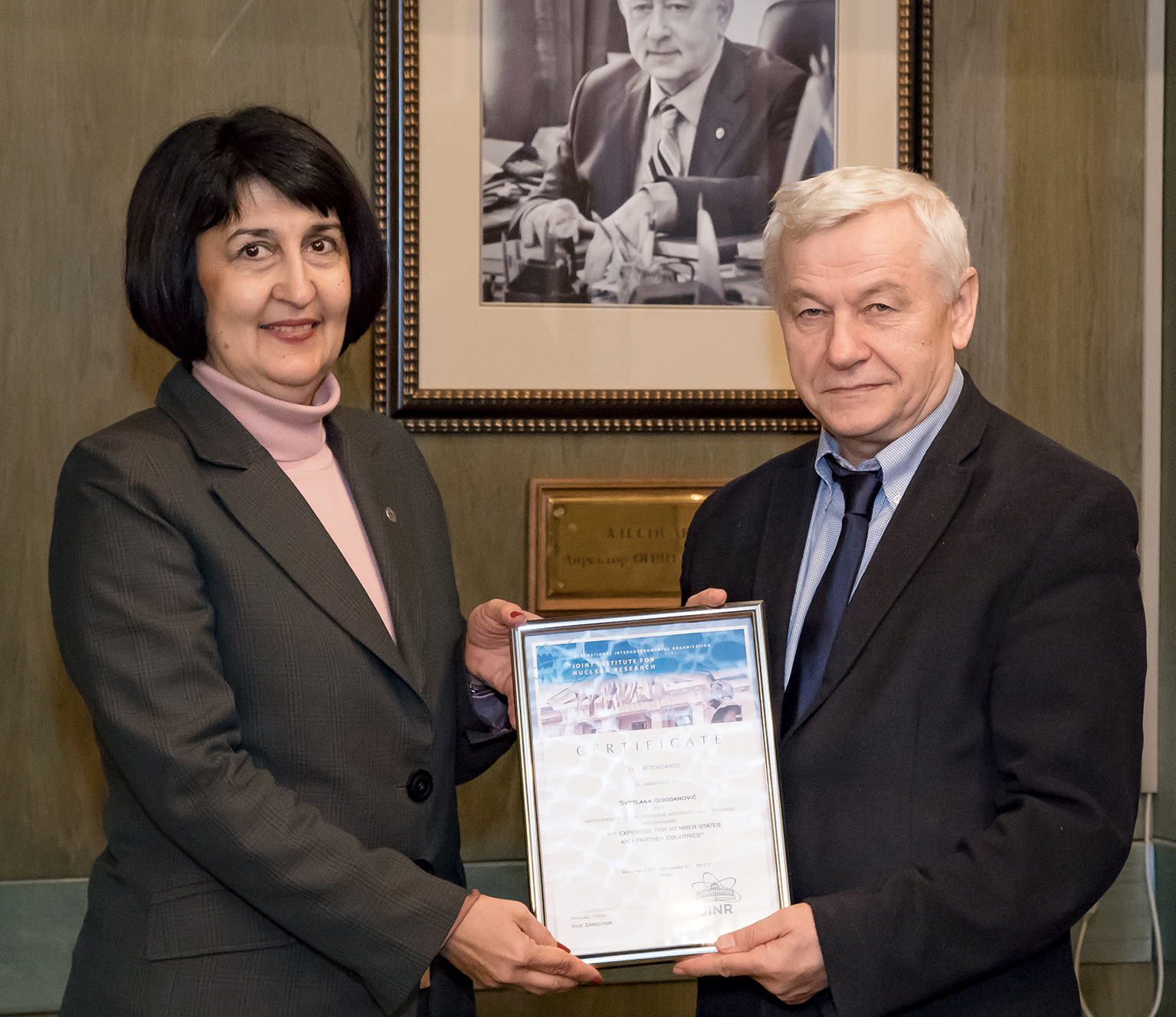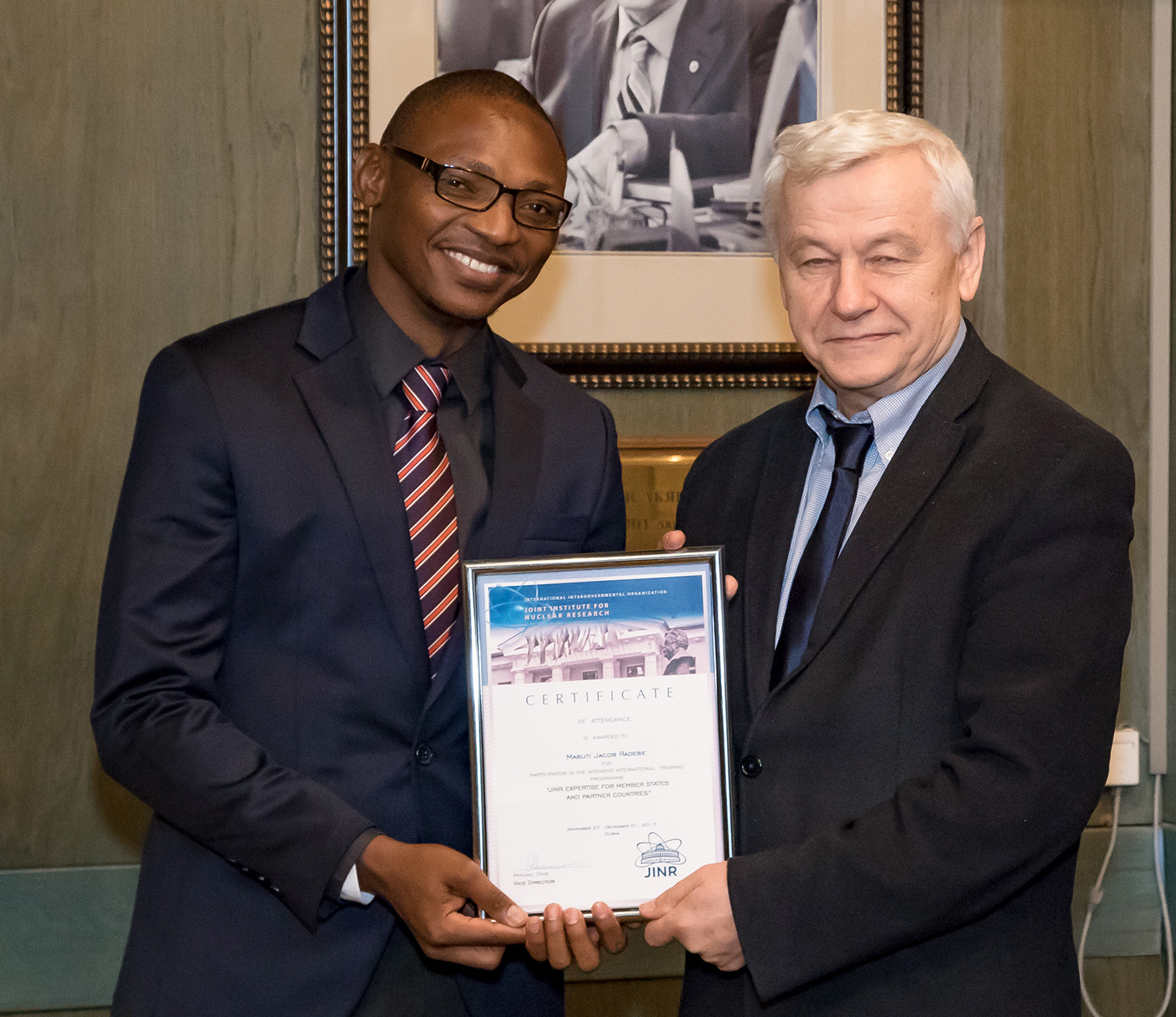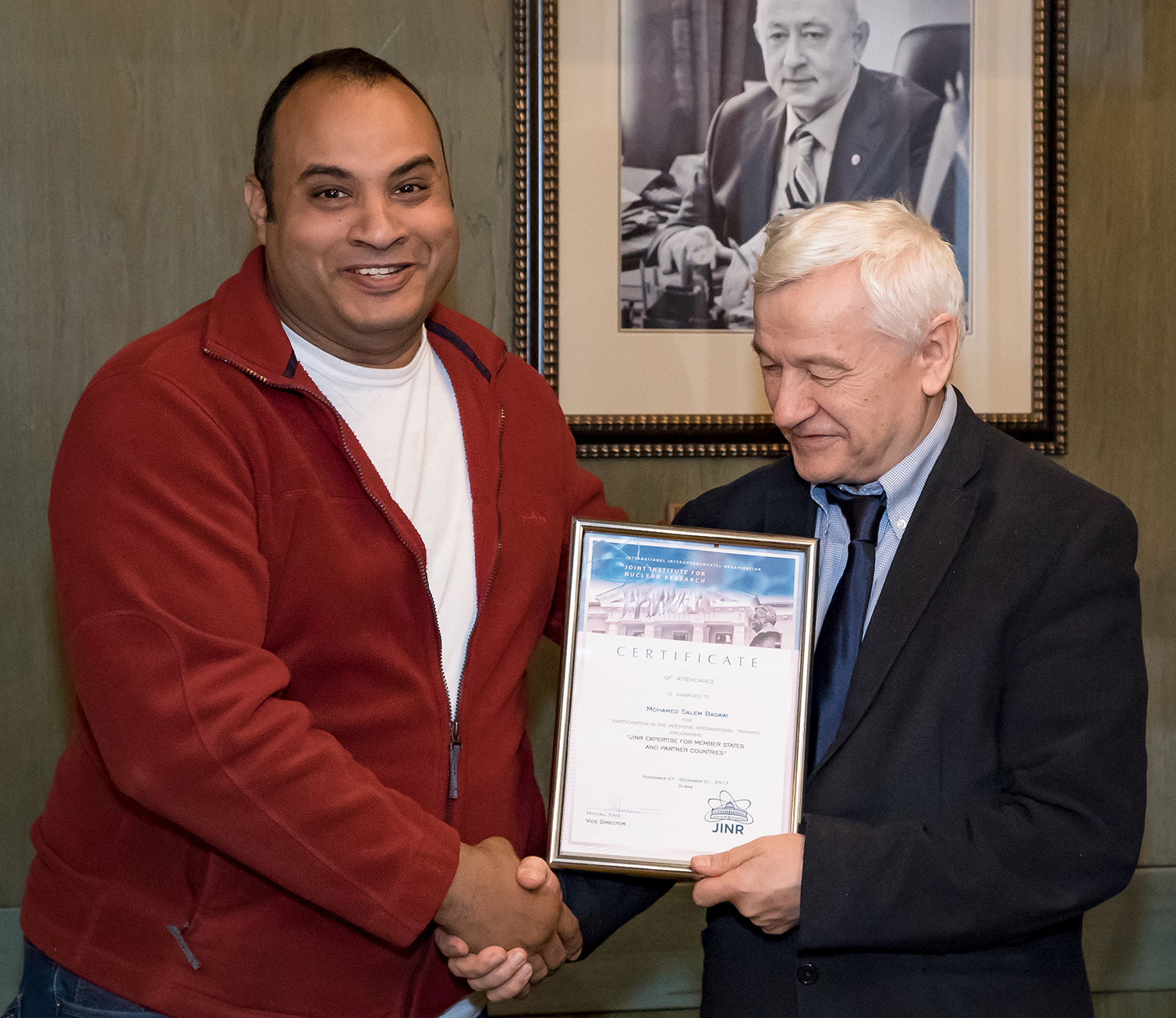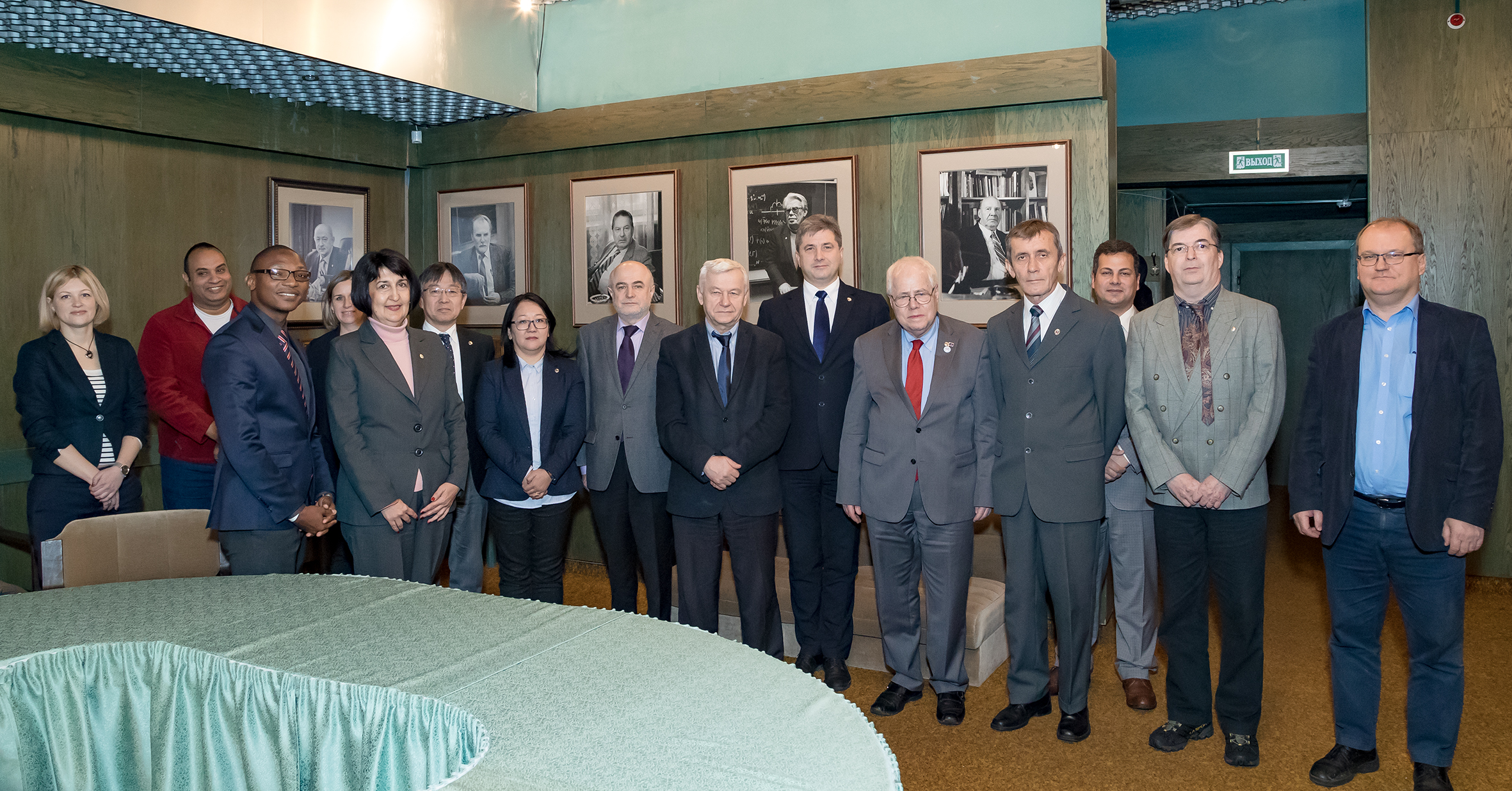The 4th JEMS training programme finished
Education, 08 December 2017
On 1 December 2017, the 4th International training programme for decision-makers in science and international scientific cooperation JEMS – «JINR Expertise for Member States and Partner Countries» was finished. Representatives from Hungary, Lebanon, Mongolia, Serbia and the Republic of South Africa took part in the 4th JEMS training.
As in the course of previous JEMS trainings, participants got acquainted with various aspects of JINR work during five days starting on 27 November. A distinctive feature of the 4th training programme was topical grouping of lectures and excursions by days. Thus, Monday was devoted to heavy ion physics and accelerator technologies; Tuesday was the day of material science and nanoworld; non-experimental disciplines under general name “Information. Theory. Education” were presented on Wednesday, “Sciences of life on the Earth and in Space” were presented on Thursday, and Friday was the day of neutrino.
Accordingly, additional lectures on CARS spectrometry and theoretical physics as well as an excursion to the pavilion of the simulation of Martian soil were included in the 4th JEMS programme. There were also a series of bilateral meetings.
JEMS is a training programme – “JINR Expertise for Member States and Partner Countries”, run by the Joint Institute for Nuclear Research in Dubna. The programme is targeted at administrators and managers of international projects in science and research in nuclear sciences and related disciplines.
A large delegation from Hungary came to participate in the 4th JEMS training programme. Professor Jie Gao who came to Dubna to deliver the seminar «CEPC-SppC: Status and Perspective» in the Laboratory of High Energy Physics, organized his work in JINR according to the JEMS programme.
The training programme was finished on 1 December 2017 by the meeting of participants with the JINR Directorate at a round table. JINR Vice-Director Richard Lednický awarded participants certificates. JINR Chief Scientific Secretary Alexander Sorin, Director of the JINR University Centre Stanislav Pakuliak, FLNP Deputy Director Otilia Kulikov, Head of the JINR International Cooperation Department Dmitry Kamanin and Deputy Head of the Department Anna Kotova took part in the round-table meeting.
Round table participants shared their ideas on JEMS training’s improvement and impressions of the week spent in Dubna (full text will be delivered in the JINR Weekly Newspaper):
Jozsef Molnar, Technical Director of the Institute for Nuclear Research of the Hungarian Academy of Sciences: My first visit to Dubna was 30 years ago, in 1987. I worked there 3 years. Now I have returned here after such a long break. It is a great opportunity to compare the Institute’s state that was in 1980s and its state nowadays. I think the past and the future are connected by the bridge of the present, and I got an opportunity to look around and met new people. Everyone were hospitable to us, and I am happy that I have visited Dubna and JINR at the end of my career.
Zsolt Dombradi, Director of the Institute for Nuclear Research of the Hungarian Academy of Sciences: We can see several strategic directions in which our institutes have common scientific interests. After visits to JINR laboratories, I’d like to notice outstanding progress in each of them. Virtually each of them develops at a fast pace, excellent scientists work at JINR, and the atmosphere of the Institute is inspiring.
Byambadorj Tuyatsetseg, Head of Foreign Affairs Division of Nuclear Energy Commission of the Government of Mongolia: During this training programme, some ideas on new forms of cooperation with JINR came to my mind. These ideas will be discussed at the level of Mongolia Atomic Energy Commission. As a specialist in international cooperation, I learnt much about it and discovered new directions of development during those days. Moreover, I found new ways to support young Mongolian scientists who live and work in Dubna. The opportunity to work at JINR and gain experience and knowledge from your leading scientists is precious for our young scientists.
Svetlana Bogdanovic, Head of the Department for International Cooperation of the Ministry of Education, Science and Technological Development, Serbia: I am impressed by the high level of organization of the training programme. Our Ministry pays special attention to international cooperation development to give an opportunity to Serbian scientists to conduct joint research with colleagues from leading scientific centres. JINR offers wide opportunities in this regard thanks to its high-standard laboratories and unique research equipment. It allows conducting cutting-edge research not only in the field of physics, but also in other disciplines such as biology, chemistry, and IT. The University of Belgrade and Novi Sad have already conducts joint research with JINR. I hope the number of Serbian universities cooperating with JINR will rise in the nearest future. I suppose that the University of Kragujevac and the University of Nis, scientific interests of which mostly coincide with JINR’s, will join to this international cooperation. It will give new opportunities for organization of scientific exchange and mutually beneficial and fruitful cooperation.
More details in the JINR Weekly Newspaper (RUS)
Photos by Elena Puzynina

